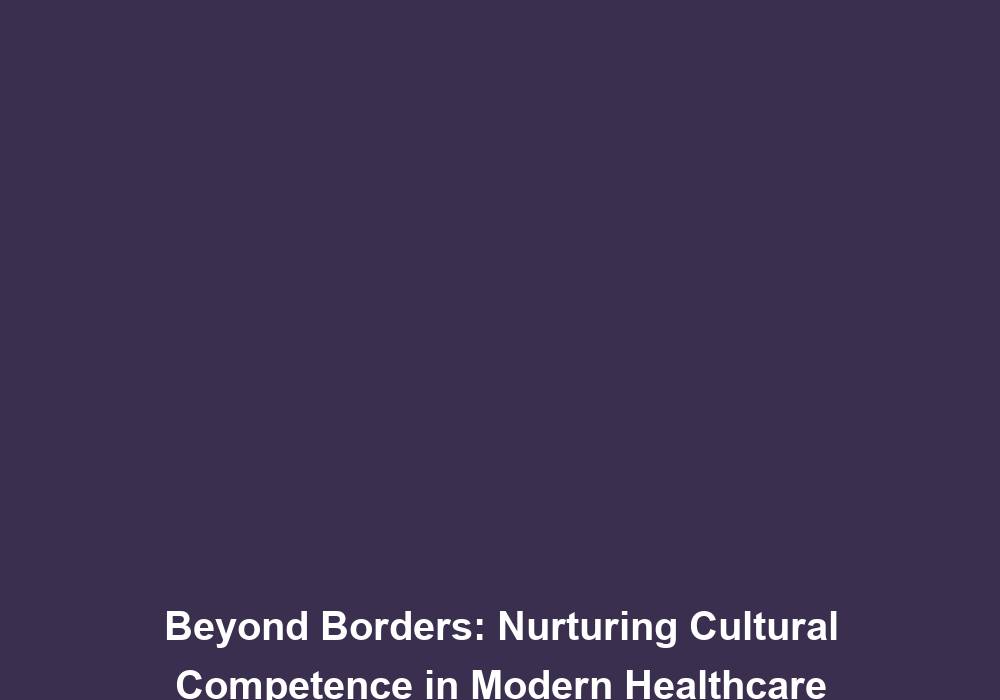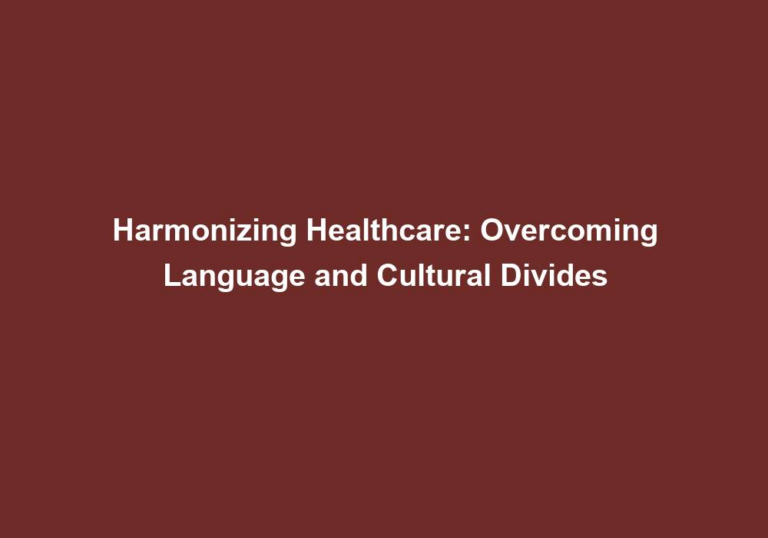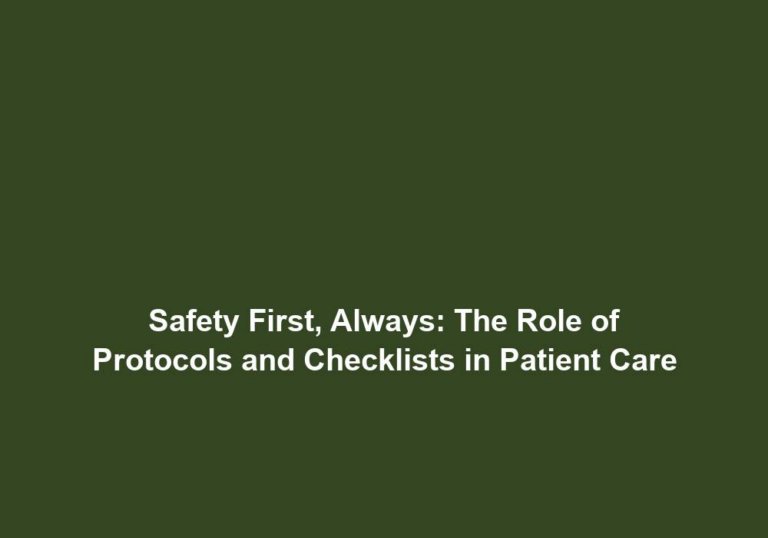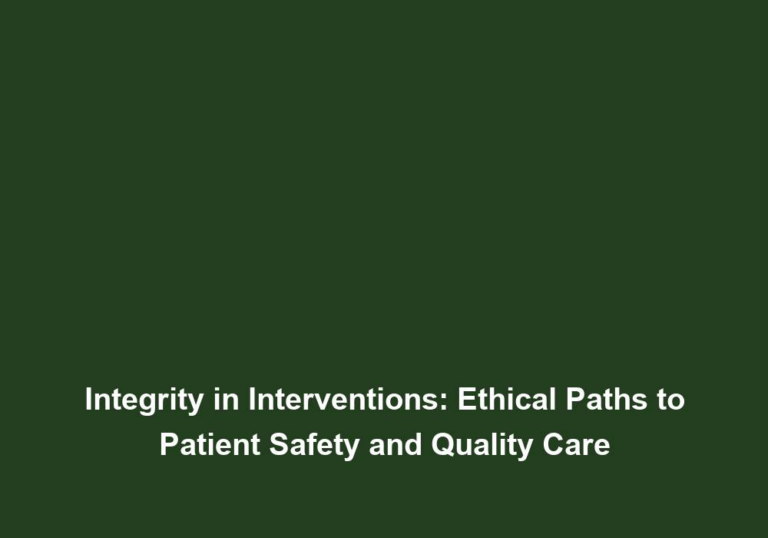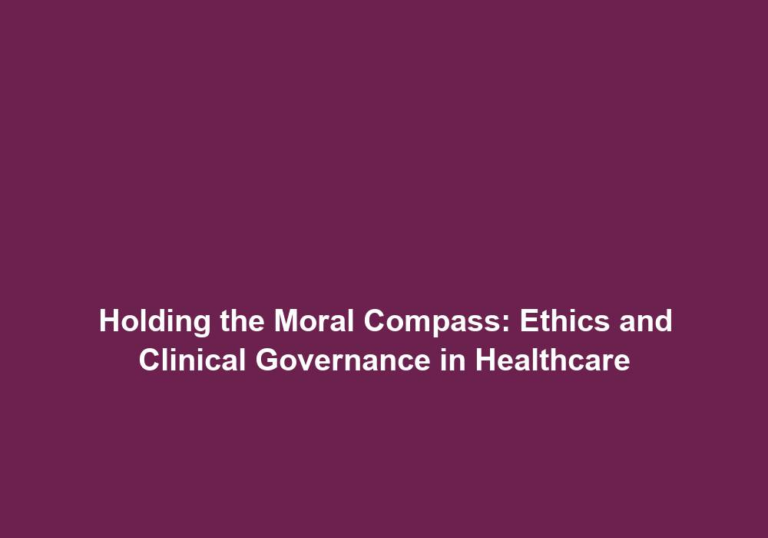Beyond Borders: Nurturing Cultural Competence in Modern Healthcare
In today’s globalized world, the healthcare industry is becoming increasingly diverse. Healthcare professionals are faced with the challenge of providing effective and culturally sensitive care to individuals from a variety of cultural backgrounds. Understanding and embracing cultural competence is crucial for healthcare providers to ensure the provision of quality care to all patients, regardless of their cultural background. This article explores the importance of nurturing cultural competence in modern healthcare and provides actionable strategies to achieve it.
Understanding Cultural Competence
Cultural competence refers to the ability of healthcare providers to understand, appreciate, and effectively interact with individuals from different cultural backgrounds. It involves being aware of one’s own cultural biases and being open-minded and respectful towards diverse beliefs, values, and practices. By developing cultural competence, healthcare professionals can deliver patient-centered care and bridge potential gaps in communication, understanding, and trust.
Cultural competence goes beyond simply acknowledging cultural differences. It requires healthcare providers to actively educate themselves about different cultures, including their traditions, customs, and healthcare beliefs. This knowledge helps healthcare professionals better understand the unique needs and perspectives of their patients. It also enables them to provide care that is tailored to the individual, taking into account cultural considerations that may impact healthcare decisions.
To foster cultural competence, healthcare providers should engage in continuous education and training. This can be accomplished through various means, such as attending workshops, seminars, or online courses that focus on cultural diversity in healthcare. Additionally, healthcare professionals can benefit from cultural immersion experiences, where they interact with individuals from different cultural backgrounds to gain firsthand knowledge and understanding.
Benefits of Cultural Competence in Healthcare
-
Enhanced Patient Satisfaction: When healthcare providers demonstrate cultural competence, patients feel understood, respected, and valued. This leads to increased patient satisfaction and better patient outcomes. Patients are more likely to trust and engage with healthcare professionals who demonstrate cultural sensitivity, resulting in a stronger patient-provider relationship.
-
Improved Communication: Cultural competence promotes effective communication between healthcare providers and patients, reducing misunderstandings and improving treatment adherence. When healthcare providers understand the cultural nuances of their patients, they can tailor their communication styles and methods to ensure clear and effective information exchange. This includes considering language preferences, non-verbal cues, and cultural communication norms.
-
Increased Trust: By displaying cultural sensitivity, healthcare professionals can build trust with patients, leading to better patient engagement and compliance with treatment plans. Patients are more likely to follow medical advice and adhere to treatment plans when they feel that their healthcare provider respects and understands their cultural background. Trust is a crucial element in the patient-provider relationship and contributes to positive health outcomes.
-
Reduced Health Disparities: Cultural competence helps address health disparities by ensuring that healthcare services are accessible, equitable, and responsive to the diverse needs of different cultural groups. By understanding and addressing the unique social, economic, and cultural factors that contribute to health disparities, healthcare providers can work towards eliminating barriers and promoting health equity for all individuals, regardless of their cultural background.
Strategies for Nurturing Cultural Competence
-
Continuous Education and Training: Healthcare professionals should undergo regular cultural competence training to enhance their understanding of different cultures, traditions, and healthcare beliefs. This can be achieved through workshops, seminars, online courses, or cultural immersion experiences. By staying updated on cultural trends and practices, healthcare providers can better serve their diverse patient population and provide culturally sensitive care.
-
Building a Diverse Workforce: Employing a diverse healthcare workforce that represents various cultural backgrounds can foster cultural competence within an organization. Having diverse perspectives and experiences can enrich the overall healthcare environment and promote inclusivity. Healthcare organizations should actively recruit individuals from different cultural backgrounds and create an inclusive work culture that values diversity.
-
Language Services: Providing language services, such as professional interpreters or translated materials, is crucial for effective communication with patients who have limited English proficiency. This ensures that patients can express their concerns, understand their diagnoses, and actively participate in their healthcare decisions. Healthcare providers should invest in language services to bridge language barriers and promote effective communication with diverse patient populations.
-
Cultural Assessment Tools: Implementing cultural assessment tools, such as questionnaires or checklists, can help healthcare providers gather individual cultural information. This information can guide personalized care plans and ensure that cultural aspects are taken into consideration during diagnosis, treatment, and care. Cultural assessment tools enable healthcare providers to identify and address cultural preferences, beliefs, and practices that may influence healthcare outcomes.
-
Collaboration with Community Organizations: Establishing partnerships with community organizations that serve specific cultural groups can provide valuable insights and resources to healthcare providers. Collaboration can help address cultural barriers, improve healthcare access, and foster trust within diverse communities. By working closely with community organizations, healthcare providers can gain a deeper understanding of the cultural needs and preferences of their patients, leading to more effective and culturally sensitive care.
-
Cultural Sensitivity in Policies and Procedures: Healthcare organizations should develop policies and procedures that respect cultural diversity and promote inclusive practices. This can include incorporating cultural considerations into healthcare protocols, ensuring diverse representation in decision-making processes, and promoting patient-centered care. Cultural sensitivity should be embedded in all aspects of healthcare organizations’ operations to create an inclusive and equitable healthcare environment.
-
Encouraging Cultural Awareness Among Staff: Creating a culture of respect and open-mindedness starts from within healthcare organizations. Encouraging staff to embrace cultural diversity, engage in self-reflection, and challenge their own biases can foster a more inclusive healthcare environment. Healthcare organizations can offer diversity and cultural competence training programs, facilitate open discussions about cultural differences, and celebrate cultural events to promote cultural awareness among staff.
-
Patient Education: Providing culturally appropriate patient education materials can empower patients to take an active role in their healthcare. These materials should consider language preferences, health literacy levels, and cultural beliefs to ensure effective communication and understanding. Healthcare providers should develop educational resources that are culturally sensitive, visually appealing, and easily accessible to diverse patient populations.
-
Seek Feedback and Evaluate Outcomes: Regularly seeking feedback from patients and staff regarding cultural competence initiatives is essential for ongoing improvement. Evaluating outcomes and making necessary adjustments based on feedback can help healthcare organizations continuously enhance their cultural competence practices. This feedback loop ensures that healthcare providers stay responsive to the evolving needs and expectations of their diverse patient population.
By implementing these strategies, healthcare providers can foster cultural competence and create a healthcare environment that respects and embraces diversity. Nurturing cultural competence in modern healthcare is not only beneficial for patients but also promotes a more inclusive and equitable healthcare system as a whole. Healthcare professionals have the opportunity to make a significant impact on the overall well-being of individuals from diverse cultural backgrounds by providing culturally sensitive care and promoting health equity.

